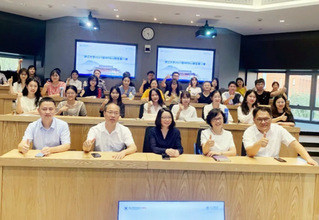3月26日上午9:30在学院1002会议室,来自明尼苏达大学工业和系统工程系的Saif Benjaafar教授将为大家做一次“生产和服务”研究方面的精彩专题报告,题为“Capacity Sharing and Cost Allocation among Independent Firms in the Presence of Congestion”。欢迎各位师生参加。
Saif Benjaafar是苏达大学工业和系统工程系的教授,供应链研究中心主任。Saif Benjaafar教授是一位非常有影响力的学者,他的主要研究领域包括生产和服务运作、生产和库存系统以及供应链管理。多篇研究论文在Management Science, Operations Research, MSOM, and IIE Transactions发表。Saif Benjaafar教授是多个国际著名期刊的编委,如MSOM, POM, NRL, and IIE等。更多相关个人信息可参考其个人主页:http://www.ie.umn.edu/faculty/faculty/Benjaafar.shtml
Capacity Sharing and Cost Allocation among
Independent Firms in the Presence of Congestion
Saif Benjaafar
Industrial & Systems Engineering, University of Minnesota, Minneapolis, MN 55455, saif@umn.edu ? www.ie.umn.edu
Abstract
The sharing of production/service capacity among independent firms is increasingly common in industry. Capacity sharing allows firms to hedge against demand uncertainty and to achieve economies of scale. The benefits are in the form of lower costs, improved service quality, or both. Capacity sharing among independent firms raises several important questions. Is capacity sharing always beneficial to all firms? Does it always lead to a reduction in total capacity in the system? How should capacity costs be allocated among the different firms? Is capacity sharing among all the firms the best arrangement or would sharing among smaller subsets of the firms be more beneficial to particular firms? Can capacity sharing be beneficial when firms do not report truthfully private information? Is it possible to induce firms, via cost allocation alone, to disclose truthfully their private information? In this talk, we address these and other related questions in settings where production/service facilities can be modeled as queueing systems. Firms decide on capacity levels to minimize delay costs and capacity investment costs subject to service level constraints. We formulate the problem as a cooperative game among independent agents, in which is embedded a non-cooperative information sharing game. We identify various settings where the core of the game is non-empty (a capacity sharing arrangement involving all the firms is optimal) and show that it is possible to design a cost allocation rule that is not only in the core but also guarantees truth telling. (This work is joint with Yimin Yu, University of Minnesota, and Yigal Gerchak, Tel Aviv Universitys)





